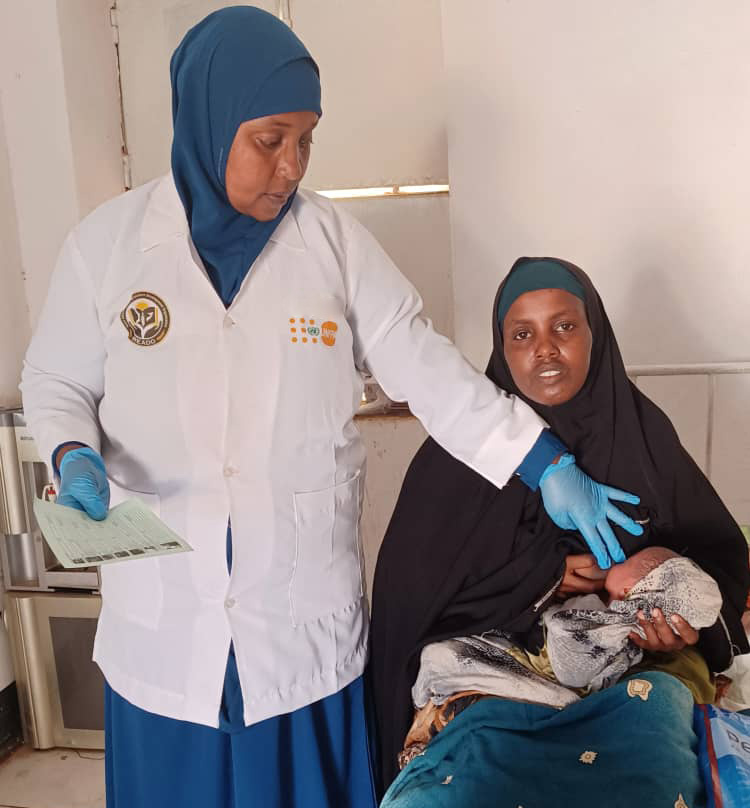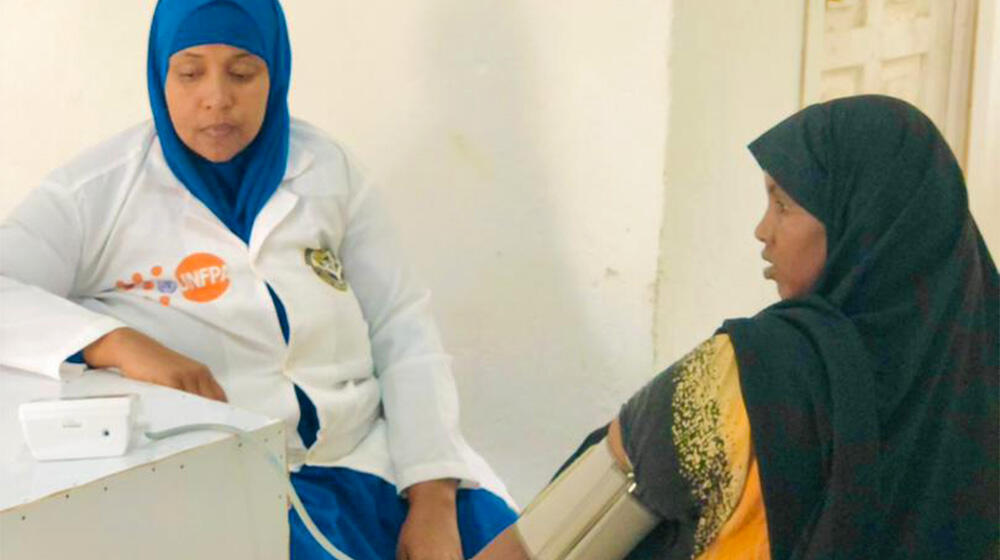Habibo Mohamed Ali is a 28-year-old Somali woman who recently embarked on a treacherous journey to new motherhood. Living in Baidoa, in Somalia’s Bay region, Habibo's community has seen an influx of internally displaced persons (IDPs) fleeing droughts, floods, and conflict, exacerbating the humanitarian crisis for vulnerable women and children.
Initially, like many women in her community, Habibo was encouraged by her family to deliver at home with the assistance of a traditional birth attendant. However, following engagements with UNFPA’s outreach teams supported by READO and comprehensive awareness sessions on safe deliveries and the importance of ANC, Habibo decided to seek help at the Kulmis Health Facility on March 20, 2024. She was suffering from pregnancy edema. The dedicated team at the health facility provided her with a comprehensive ANC package, including consultation, medication, and mosquito nets to protect against malaria.
On June 25, 2024, Habibo returned to the facility in severe pain. The skilled midwives quickly identified that she was in the early stages of labor. They provided her with supportive fluids and monitored her closely. Thanks to the diligent care of the midwives, Habibo successfully delivered a healthy baby boy named Mohamed. Her successful delivery not only saved her life but also highlighted the importance of accessible maternal health services in Somalia.
"This delivery was my best and safest one. The skilled staff were always ready to support me and my baby, ensuring our safety with medical and emotional support. They made me feel like family, showing me the utmost care,” Habibo shared while resting in the post-delivery room.

In recent years, Somalia has witnessed significant strides in maternal health, with the maternal mortality ratio (MMR) reducing by 44% from 1,044 maternal deaths per 100,000 live births in 2006 to 694 in 2020. However, limited access to high-impact interventions like ANC, safe deliveries by skilled attendants, and institutional births continues to challenge further progress. The Somalia Health and Demographic Survey (SHDS) highlighted that 79% of births occur at home, emphasizing the urgent need for improved maternal health services.
To address these challenges, UNFPA, with support from READO and funding from Global Affairs Canada, has been implementing reproductive health activities, particularly Basic Emergency Obstetric and Newborn Care (BEmONC), in areas hosting large populations of displaced communities that suffer from scarce health services and high pregnancy-related complications, such as Baidoa, Benadir, and Balcad.
With such interventions, women like Habibo can now access the critical health services they need, ensuring safer pregnancies and healthier futures for their families.


